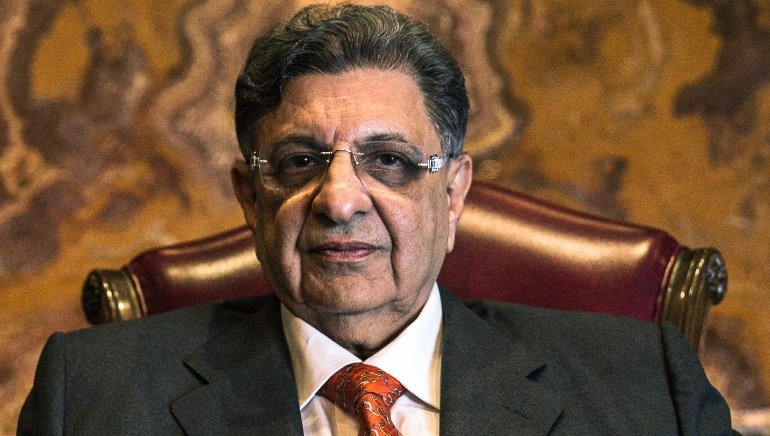Introduction
Cyrus S. Poonawalla, a visionary entrepreneur, philanthropist, and global healthcare leader, is one of the most influential figures in modern medicine. As the founder and chairman of the Serum Institute of India (SII), Poonawalla revolutionized vaccine manufacturing, transforming India into a hub for affordable and high-quality vaccines. Under his leadership, SII has not only saved millions of lives but also solidified its position as the largest vaccine producer globally by volume.
His life story is a remarkable blend of entrepreneurial acumen, scientific innovation, and a commitment to humanity. This comprehensive exploration sheds light on his life, achievements, and the transformative impact he has made on the world.
Early Life and Background
A Legacy of Enterprise
Born on May 14, 1941, in Pune, Maharashtra, Cyrus Poonawalla grew up in a prosperous Parsi family deeply involved in horse breeding and racing. His father, Soli Poonawalla, owned the Poonawalla Stud Farms, one of the most prestigious equestrian businesses in India.
As a young boy, Cyrus developed an interest in his family’s equestrian ventures. However, he soon realized that horse racing, though lucrative, had limited societal impact. His entrepreneurial instincts pushed him to explore ventures that could contribute to society on a larger scale.
Education and Early Influences
Cyrus attended Bishop’s School in Pune, followed by his graduation in commerce from Brihan Maharashtra College of Commerce (BMCC) at Pune University. While pursuing his studies, he cultivated a strong understanding of business principles, which later proved instrumental in building his pharmaceutical empire.
His inclination towards science and a desire to address India’s public health challenges inspired him to delve into vaccine manufacturing.
Founding the Serum Institute of India
A Bold Shift from Tradition
In the 1960s, India faced a severe shortage of affordable vaccines, leading to preventable deaths from diseases like diphtheria, tetanus, and polio. Observing this, Cyrus decided to transition from his family’s horse-breeding business to establish a venture that could make a meaningful difference in public health.
Cyrus Poonawalla founded the Serum Institute of India in 1966, at the age of 25. With an initial investment of INR 5 lakh and a vision to produce cost-effective vaccines, he began manufacturing tetanus antitoxin and anti-snake venom serums, which were in high demand.
Overcoming Challenges
Starting a vaccine manufacturing unit in the 1960s was no easy feat. Cyrus faced skepticism from his family and peers, who doubted the viability of his venture. Additionally, securing resources, skilled scientists, and regulatory approvals posed significant challenges. However, his relentless determination and innovative approach enabled him to overcome these hurdles.
Serum Institute’s Journey to Global Leadership
Scaling Up Vaccine Production
Under Cyrus Poonawalla’s visionary leadership, SII expanded its portfolio to include vaccines for measles, rubella, mumps, hepatitis B, and influenza. By adopting innovative production techniques and economies of scale, the institute made vaccines affordable for low- and middle-income countries.
Today, the Serum Institute produces over 1.5 billion vaccine doses annually, supplying vaccines to more than 170 countries. Its products account for nearly 65% of the world’s vaccine needs for children, protecting millions from life-threatening diseases.
Key Milestones
- Polio Eradication: The institute played a crucial role in global polio eradication efforts by producing affordable oral polio vaccines.
- Global Accreditation: SII’s vaccines are pre-qualified by the World Health Organization (WHO), making them eligible for distribution through international agencies like UNICEF and GAVI.
- Research and Development: Investing in cutting-edge R&D, the institute developed innovative vaccine platforms and collaborated with global pharmaceutical giants.
COVID-19 Pandemic and the Covishield Success
The Role of SII in the Pandemic
When the COVID-19 pandemic struck, SII emerged as a global savior. Partnering with AstraZeneca and Oxford University, the institute produced Covishield, an affordable and effective vaccine.
Cyrus Poonawalla’s commitment to equitable vaccine distribution ensured that low-income countries received millions of doses at subsidized rates or as donations. By manufacturing over 1.5 billion doses of Covishield, SII became a cornerstone of the global fight against COVID-19.
Challenges Faced
Despite its monumental success, the company faced logistical, regulatory, and supply chain challenges during the pandemic. However, Poonawalla’s strategic leadership ensured the timely production and distribution of vaccines, reinforcing SII’s reputation as a global leader in healthcare innovation.
Recognition and Awards
Cyrus Poonawalla’s exceptional contributions to healthcare and philanthropy have earned him several prestigious accolades, including:
- Padma Bhushan (2005): Awarded by the Government of India for his contributions to trade and industry.
- Ernst & Young Entrepreneur of the Year (2014): Recognized for his visionary leadership.
- Honorary Doctorates: Conferred by leading institutions for his role in advancing global healthcare.
- Consistently featured on Forbes’ Billionaires List, with a net worth exceeding $25 billion in 2024.
Philanthropic Contributions
Healthcare and Education
Cyrus Poonawalla’s philanthropic initiatives extend beyond vaccine production. His charitable donations have funded hospitals, research centers, and schools. The Poonawalla Science Park in Pune and Poonawalla Foundation reflect his commitment to fostering innovation and education.
Social Welfare Projects
Through the Serum Institute and the Poonawalla Foundation, Cyrus has supported infrastructure development, disaster relief efforts, and rural development projects, impacting millions of lives.
Legacy and Global Influence
Transforming India’s Global Image
Cyrus Poonawalla has been instrumental in positioning India as a global leader in biotechnology and pharmaceuticals. His work has enhanced the country’s reputation as a hub for affordable, high-quality healthcare solutions.
Inspiring Future Generations
His success story inspires aspiring entrepreneurs and scientists worldwide. By prioritizing social impact over profit margins, Poonawalla has redefined the role of business in creating a better world.
Succession and the Future of SII
The Serum Institute’s legacy is being carried forward by Cyrus’s son, Adar Poonawalla, who serves as the CEO. Together, they aim to expand the institute’s reach and develop next-generation vaccines for emerging diseases.
Conclusion
Cyrus Poonawalla’s journey from a horse breeder to a global healthcare pioneer is a story of vision, resilience, and dedication. Through the Serum Institute of India, he has addressed some of the world’s most pressing public health challenges, saving countless lives and creating a lasting impact.
His unwavering commitment to innovation, affordability, and accessibility has reshaped the global vaccine industry, ensuring that even the most vulnerable populations have access to lifesaving immunizations. As a philanthropist, entrepreneur, and thought leader, Cyrus Poonawalla’s legacy will continue to inspire and influence generations to come.
In a world increasingly defined by disparities, his life exemplifies the transformative power of compassion-driven innovation.



